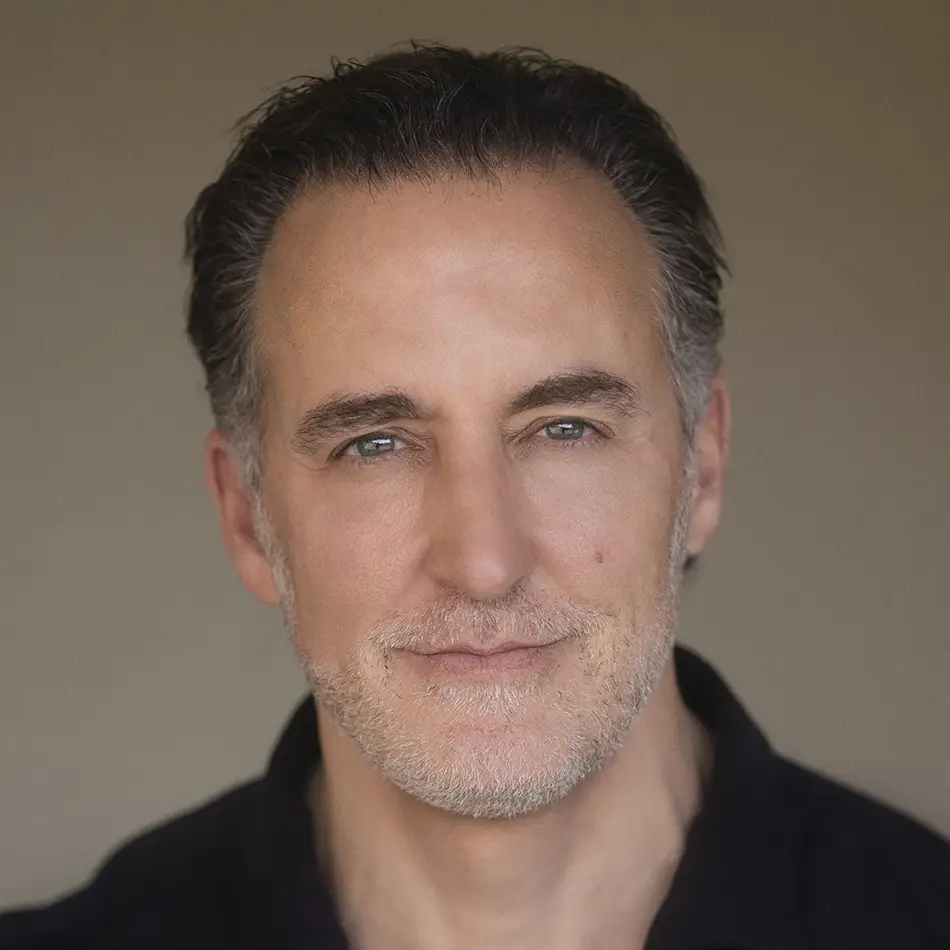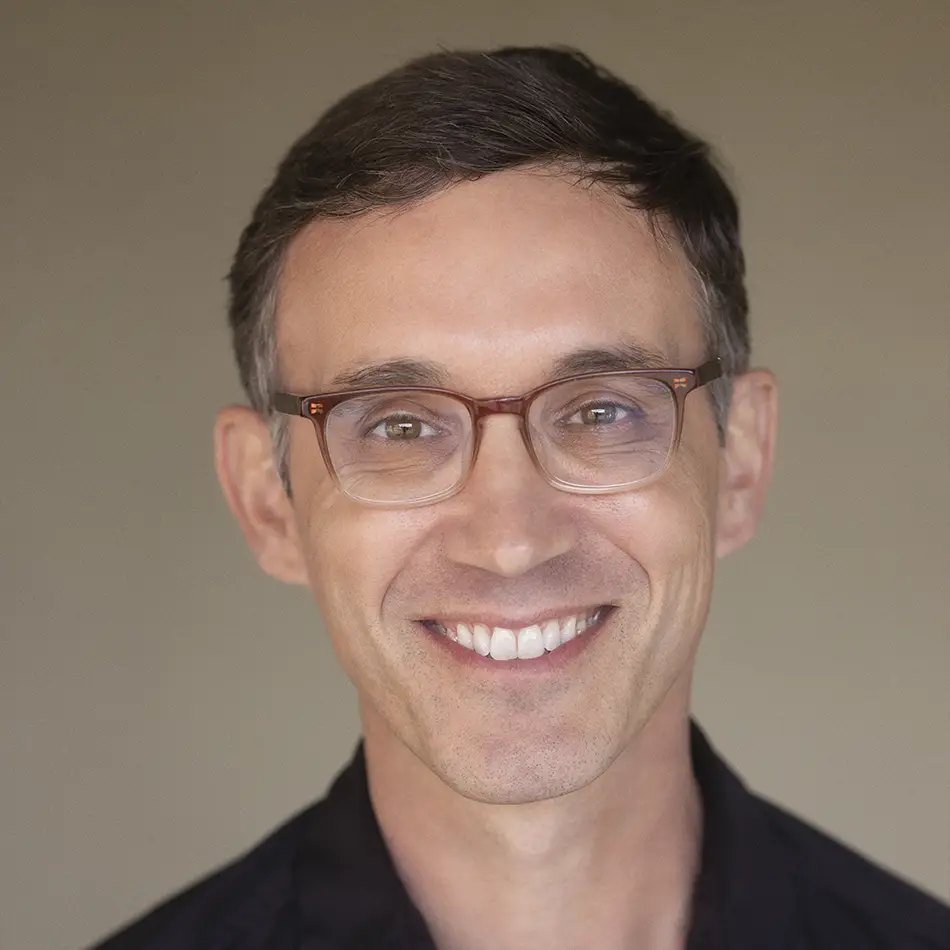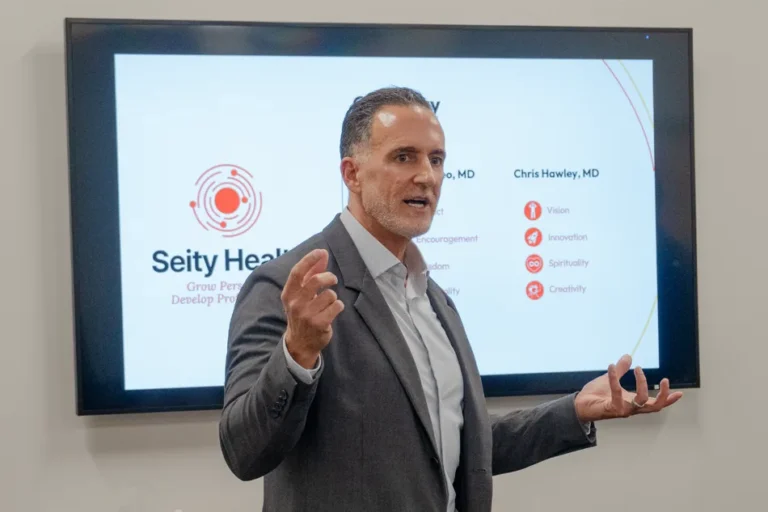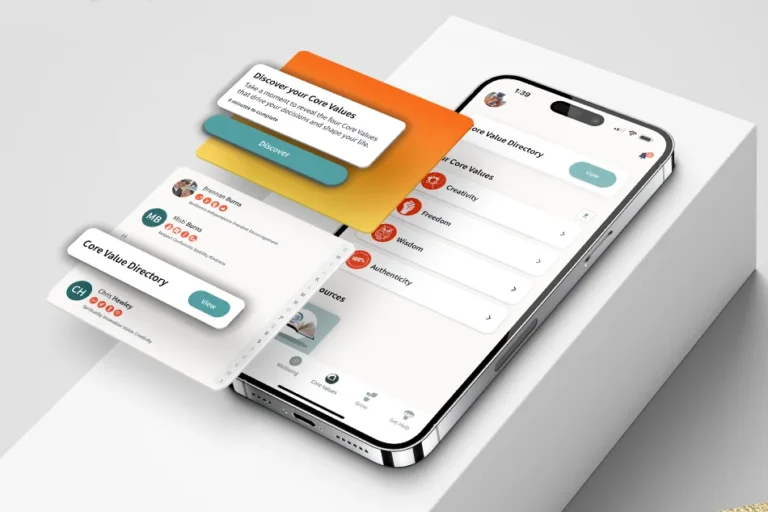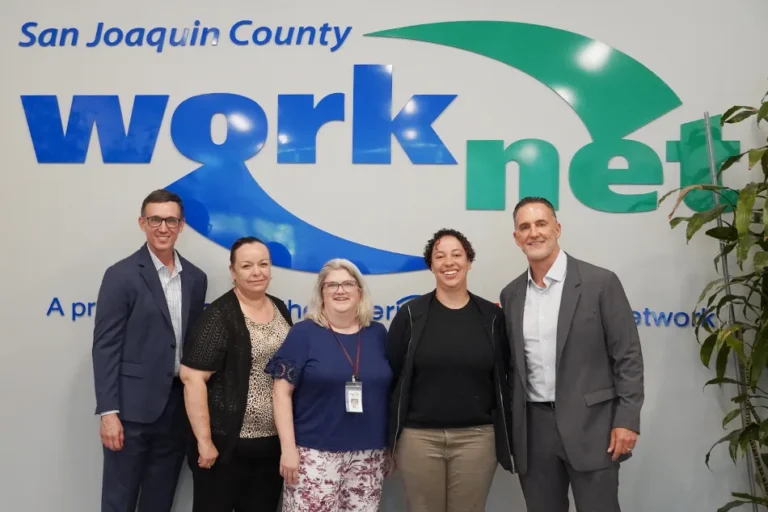Uniting in the wake of tragedy
In 2003, a small group of sports medicine and family doctors started a practice with a deep commitment to improving the health of those in their community. When a series of unconnected yet tragically similar events occurred, they were called to answer the question, “What are we missing?”
Content warning
This story contains themes of sadness, tragedy, and loss, including references to suicide. It explores deeply emotional experiences that may be difficult for some readers. Please proceed with care.

“It could never happen to me…”
One evening while seeing walk-in patients, one of the physicians encountered an anxious patient with a recent surgical incision on their abdomen that was opening. The physician calmed the patient, patched the wound, arranged follow-up with a surgeon, and provided a prescription to ease the pain as it was the weekend. The young doctor felt quite proud of the excellent care he had delivered to this patient in distress…or so he thought.
The next morning the physician received a call from the coroner’s office. “Did you treat this patient yesterday?” asked the voice on the other end.
His heart sank. “Yes, I did,” the doctor replied.
“I just thought you should know that the person you treated last night took her life. She had gone around to four other clinics collecting pain medicine prescriptions and took them all at once. She clearly had a plan, and I thought you should know.”

It’s happened to us all
As the physicians talked, it turns out they all had experiences where they had done everything they were trained to do, and yet things went terribly wrong. The more they talked, the more they realized they were body experts taking care of humans… humans with a world, body, mind, and spirit that all impact their health and wellbeing. With a strong desire to do better, the physicians set out to find scalable tools that would allow them to address the concerns of their patients in a whole person way. Discovering that no such tools existed, they decided to build their own.

The second failure – Information is not enough
The doctors gathered all the evidence available and built an elegant, evidence-based whole person assessment. The insights were incredible, and patients were excited to receive information and have conversations about ways to make positive changes in their lives. Patients loved the whole person conversations and the level of investment that the physicians were making to address all areas of their life. Excited by the response from patients, the doctors knew if they lengthened their office visits even more (which they did from 15 minutes up to 60 minutes), the care would be even better! Or so they thought…
Unfortunately, when the doctors would see the patients back for follow-up, few had made or sustained meaningful change.
The aha moment:
Humans need inspiration, not just information
In patient visit after patient visit, the doctors noticed that many patients continued to struggle with sustaining healthy life choices despite their whole person approach. They also noticed that a few patients would come back after making HUGE changes to their lives which dramatically improved their health. What was the difference? Why did some people make positive changes and others didn’t when they both received the same amount of time and information from their doctors? And then it hit them — making healthy lifestyle choices wasn’t about the information, it was about the inspiration! Those patients who had tapped into the deep place inside themselves, their inspiration center, were the ones who more consistently propelled their life and health forward.
With this new insight, the path became clear. The doctors had to find a way to map the inspiration centers of each person. What they thought would be a 6-month project turned into 6 years of iterations, until at last they came up with a way for people to discover what inspires them. By helping people identify what inspires them — their Core Values — the doctors had language for people to see themselves and others for who they really are on the inside. With this deeper understanding of self, the stage was set to affirm each person as unique and good and teach them how to live out their Core Values in healthy ways in everything they did. With a Core Value–based approach to whole person health, they witnessed their patients do incredible things with their lives.
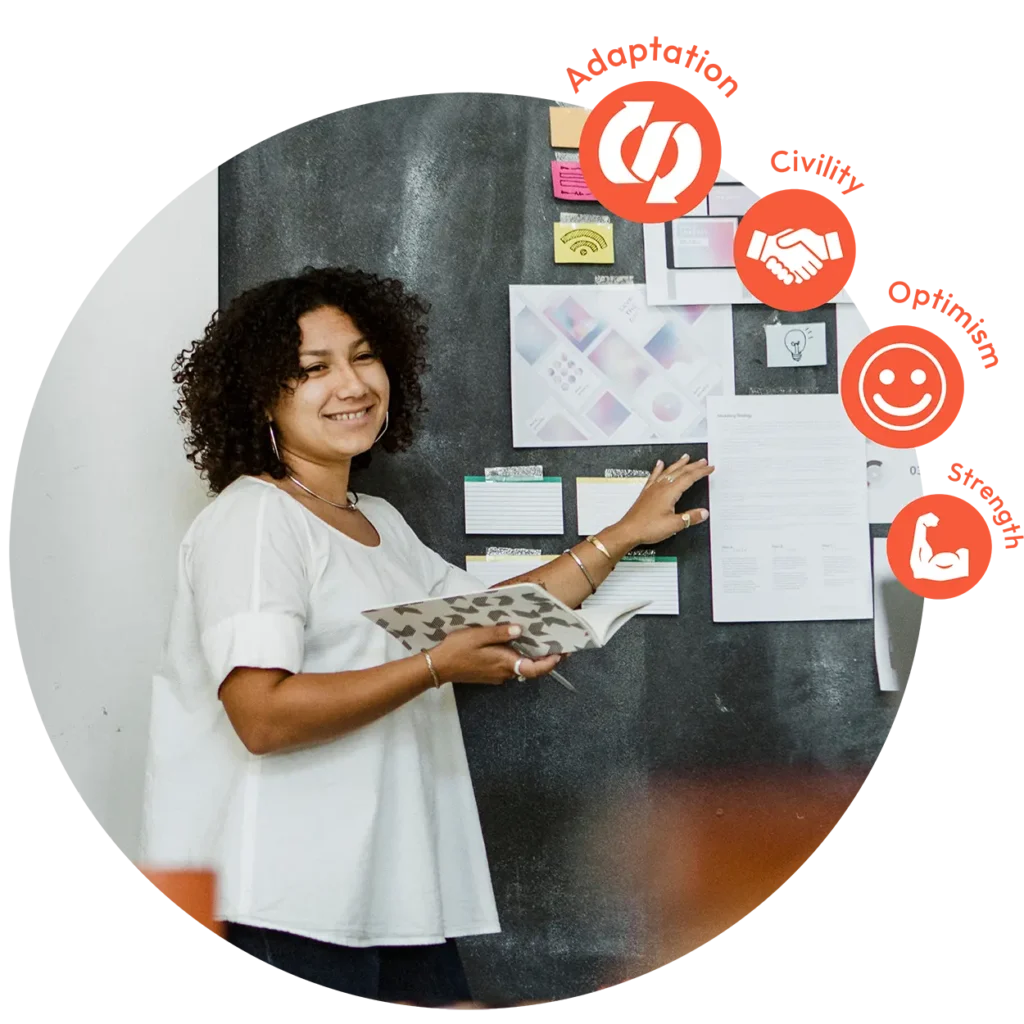
Scientifically validated and published
As patients began making significant life changes inspired by their newly discovered Core Values, the doctors sought to ensure that their approach was firmly grounded in scientific evidence. They enlisted the help of university research psychologists to rigorously evaluate the methodology and publish their scientific validation in The Journal of Personality Assessment. The research collaborations now extend to four different universities to further apply the Core Value, whole health, and wellbeing methodologies in a variety of settings.
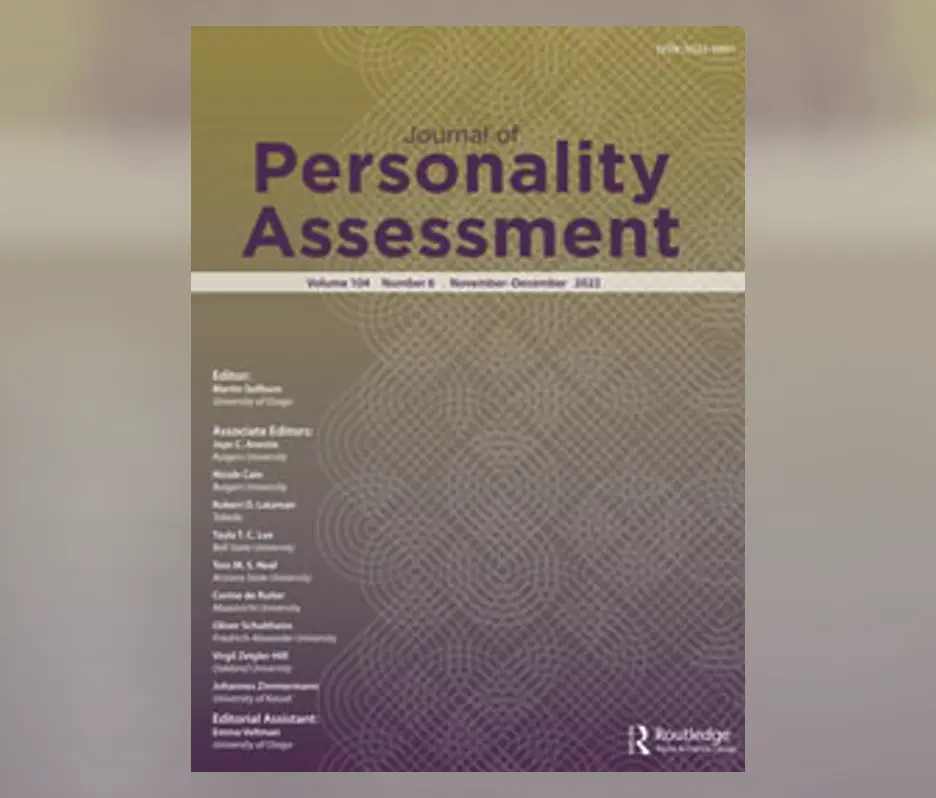
Expanding beyond healthcare
Recognizing that discovering Core Values early and building value-aligned lives significantly improved long-term well-being and performance, the group realized it was time to extend this approach beyond healthcare. They began by bringing it into school districts and universities, empowering young people to align with their Core Values. Now, they are expanding into workforce development, dedicated to helping individuals lead happier, healthier, and more successful lives.
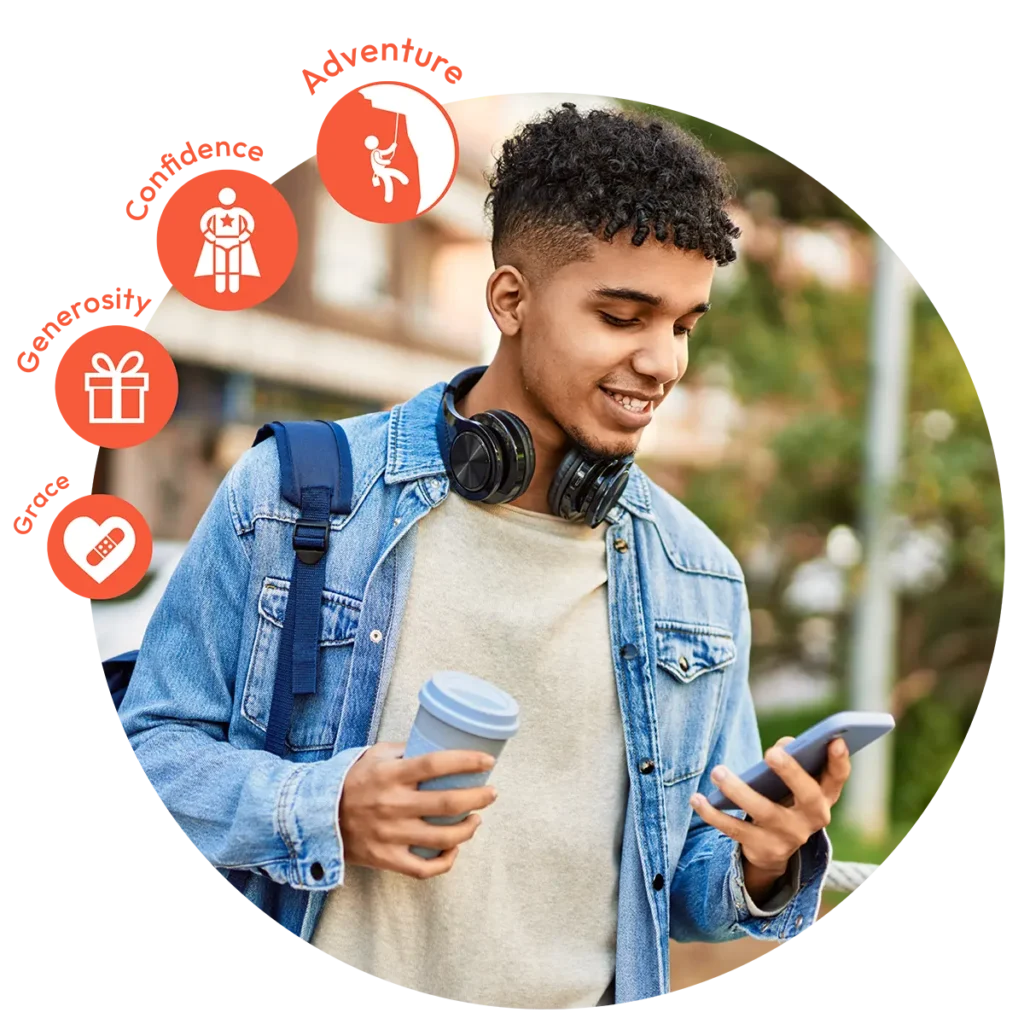
What began in exam rooms has grown into a powerful movement.
We’ve taken our Core Value–driven methodology into schools, universities, and workforce development programs—transforming how people learn, lead, and live for the better. Today, we’re partnering with Sutter Health and other Core Value champions to bring our solutions to more communities across California, moving into sports with pilots underway and harnessing the power of AI to deliver unprecedented personalization through our newly updated platform—making life-changing tools more scalable and accessible than ever. From classrooms to boardrooms, locker rooms to living rooms, our mission is clear: to help people everywhere live healthier, more inspired, and deeply connected lives.
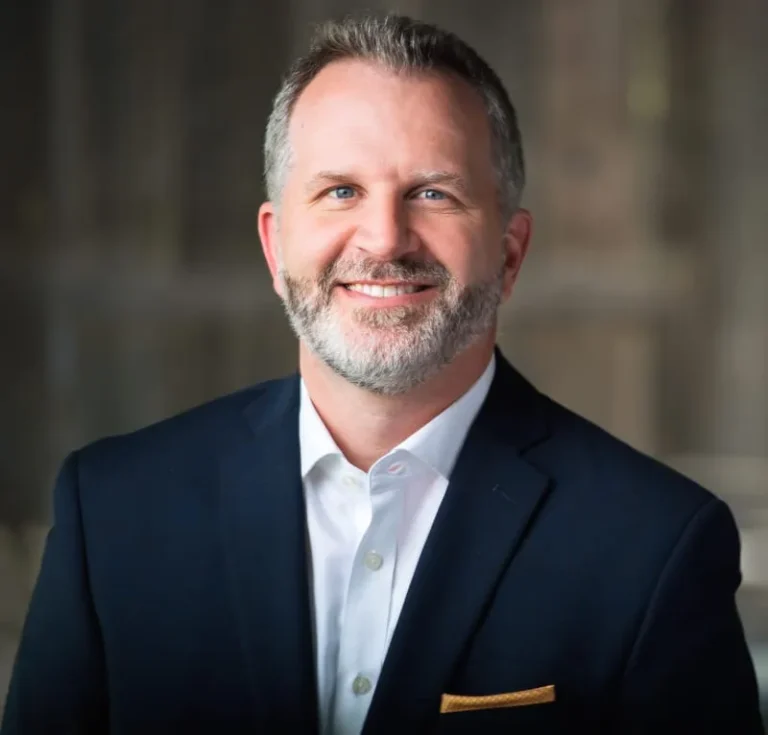
Scott Kuykendall
Stanislaus County Superintendent
"This is the most exciting thing I have seen in education in the last 20 years"
Meet two of our Cofounders
Dr. Romeo and Dr. Hawley have been instrumental in shaping Seity Health into what it is today. Their dedication to scientific research and lasting change continues to inspire and drive our the work we do.
